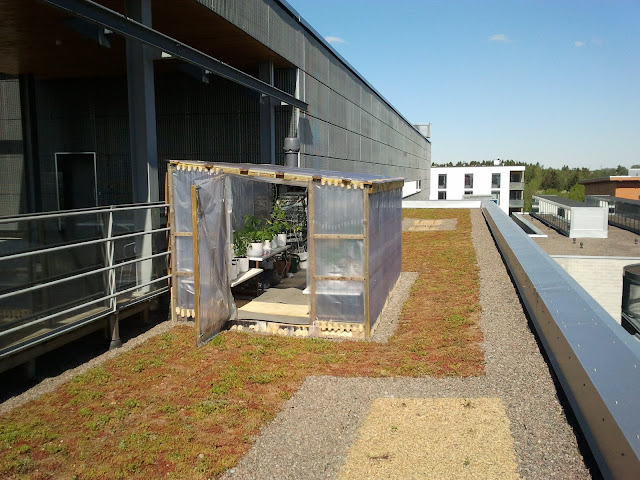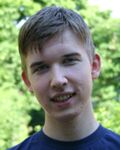From competition to collaboration
Katherine Icay, Honours Bachelor of actuarial science at the University of Toronto, decided to make a career turn after a few years in an insurance company. Although fascinated by the theoretical foundations of her study field, she ultimately found the business environment unsuitable for her character.
After making the decision to return to school, friends in Helsinki suggested she check out the offerings of the local universities. Katherine browsed through the catalog of Master’s Degree Programmes, and the one in bioinformatics (MBI) captured her interest immediately. Now she is here in Helsinki, with a smile on her face: “The atmosphere is so open”, she says. After experiencing hard competition with her peers to get good grades in her previous studies, she now finds it liberating to be able to share ideas and solve exercises together with other students. She enjoys the fact that she can finally study biology and looks forward to applying her background knowledge to important life science questions.
About choosing Helsinki and MBI, she says: “The hardest part was leaving my mom behind”. Katherine had looked for similar programs inside Canada, but could not find any that suited both her interests and degree background as well as the MBI program did.
Freedom to select the courses to complement her previous studies is very important to her. “There are no course fees, so you can sample more.”, says Katherine. She then explains that she utilizes the opportunity to sample many courses during the first weeks before deciding which ones to follow. She admits that scheduling is a little bit hard as course descriptions are often missing. “I used to have the schedule ready for the whole year before September and once registered, it was unchangable. Now I go into the first week of classes not knowing what my timetable will look like the next week!”, she says.
When asked for advice for new students entering the Programme, she has the words ready: “Come early, find a house, and enjoy Finland!” She was lucky to have friends to help her settle into Helsinki, but she has heard of many who have had difficulties in obtaining student housing. Except for housing, she says that the overall orientation organized by the university is better than what she has experienced elsewhere.
On the way home after the interview, Katherine comes up with one more important tip: “Karelian pie! A must for new incoming international students.”, she emails back.
Text: Veli Mäkinen and Abhishek Tripathi
Photo: Esa Pitkänen
Language revision: Marina Kurtén



